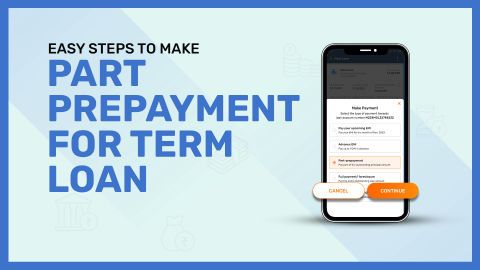Understanding doctor loan disbursement delays
Doctor loans are specifically designed to offer financial support to medical professionals for various personal and professional needs. While these loans offer numerous benefits, including attractive interest rates and flexible repayment terms, it’s important for borrowers to be aware of potential disbursement delays. Understanding the common causes and solutions for these delays can help ensure a smooth and hassle-free borrowing experience.Common causes of disbursement delays
Incomplete documentation: One of the most frequent reasons for delays in the disbursement of doctor loans is incomplete or incorrect documentation. Lenders require specific documents such as identity proof, address proof, educational certificates, and proof of medical practice. If any of these documents are missing or improperly submitted, it can cause a delay in processing and approval, which in turn delays the loan disbursement.Verification process: Banks and financial institutions need to verify the applicant’s details, including professional and financial backgrounds. This process can take time, especially if there are discrepancies or if additional information is needed. In some cases, lenders may request further documentation to verify income or the authenticity of professional qualifications, which can extend the disbursement timeline.
Credit history issues: A low credit score or poor credit history can also be a reason for disbursement delays. Even though doctor loans are often offered with more lenient eligibility criteria, lenders still assess the borrower’s ability to repay the loan. If there are issues with the applicant’s credit history, the loan approval process might be delayed as the lender conducts further checks.
Loan amount and type: The size and purpose of the loan can also affect the disbursement timeline. Larger loan amounts or loans for setting up a practice or purchasing property may require more in-depth assessments and paperwork, leading to longer processing times. Additionally, certain specialised loan products might take extra time for approval and disbursement.
How to avoid disbursement delays?
To ensure the timely disbursement of your doctor loan, make sure that you submit all required documents accurately and in a timely manner. Double-check your credit report for any errors, and address any discrepancies before applying. Working closely with your lender and staying responsive to their requests can significantly speed up the process.In conclusion, while delays in loan disbursement can occur, understanding the common causes and being proactive in addressing them can help ensure a smoother experience, allowing you to access your funds when you need them most.
Reasons why your doctor loan amount may not be credited
While doctor loans are designed to offer financial support with minimal hassle, there can be instances where the loan amount may not be credited to your account as expected. This can cause frustration and delays, especially if you have urgent financial needs. Here are some of the common reasons why your doctor loan amount might not be credited:1. Incomplete or incorrect documentation
One of the primary reasons for the delay in loan disbursement is the submission of incomplete or incorrect documentation. Lenders require specific documents such as ID proof, address proof, medical degree, practice certificate, and income details. If any of these documents are missing or incorrect, the loan approval process may be delayed, and as a result, the disbursement may be held up.2. Low credit score
Even though doctor loans are often more lenient regarding credit scores, a low score can still be an issue. A poor credit history may indicate an inability to repay the loan, causing the lender to reject or delay the disbursement. Lenders will often run credit checks before processing the loan, and if your credit score is below their acceptable threshold, they may halt or delay the disbursement.3. Pending loan approval process
Sometimes, delays in loan disbursement are due to the approval process itself. If there are internal delays at the lender’s end, such as a backlog of loan applications or manual reviews, your loan may not be credited on time. It’s important to follow up with the bank or financial institution for updates if the approval process is taking longer than expected.4. Discrepancies in provided information
If there are discrepancies in the information provided by the borrower, such as a mismatch in income statements, incorrect medical practice details, or false personal information, the loan disbursement can be delayed or even cancelled. Lenders take extra care to verify the information provided by the applicant, and any discrepancies can trigger further scrutiny.5. Loan sanction conditions not met
If you have failed to meet any specific conditions required by the lender for the loan to be disbursed, the crediting of funds could be postponed. For example, lenders may require you to sign certain documents, submit additional details, or even provide a personal guarantee or collateral. Failing to meet these conditions can delay the transfer of loan funds.6. Banking errors or technical issues
In some cases, issues like banking errors or technical glitches can prevent the loan from being credited to your account. Problems in the payment processing system, network failures, or even miscommunication between the lender and the bank can result in the delay or non-credibility of the loan amount.7. Failure to meet eligibility criteria
Despite being a doctor, you still need to meet specific eligibility criteria set by the lender, such as income level, work experience, and professional standing. If your profile does not meet the lender’s conditions, the loan may be rejected or delayed until eligibility requirements are fulfilled.8. Loan type and purpose of disbursement
The purpose of the loan can also affect the disbursement. If the loan is for a large sum or a specific purpose like setting up a medical practice or buying property, the lender may require additional checks and formalities, leading to a delay in crediting the amount. Special loans may need more detailed paperwork and approval processes before disbursement can happen.9. Lender’s discretion
Sometimes, the delay can simply be due to the lender's internal policies or discretion. They may take extra time to ensure that all criteria are met before releasing funds. In such cases, while frustrating, the disbursement might take longer simply because the lender is following their protocols to ensure responsible lending.10. Outstanding loans or debt
If you have any outstanding loans or debts that have not been cleared, the lender may hold back the disbursement of your doctor loan until your financial obligations are resolved. This is particularly true if the lender perceives that you may have a high debt-to-income ratio, which could impact your repayment capacity.Steps to take when your doctor loan is disbursed but not credited with Bajaj Finance
If your doctor loan has been disbursed by Bajaj Finance but the loan amount hasn’t yet been credited to your account, it’s essential to act quickly and follow the right steps to resolve the issue. Here's a detailed guide on what to do:1. Verify the loan disbursement details
Check the confirmation message: When Bajaj Finance disburses the loan, they typically send a confirmation message via SMS or email with details of the disbursement, including the amount, disbursement date, and bank account details.Check loan account status: Log in to your Bajaj Finance account or app to confirm the disbursement status. Sometimes, the loan may be marked as disbursed, but it takes some time for the amount to appear in your account.
2. Verify your bank account details
Confirm bank account information: Ensure that the bank account details you provided to Bajaj Finance for the loan transfer are accurate. Any discrepancies in your bank account number, IFSC code, or bank branch could cause the funds to be credited to the wrong account.Check for bank working hours: Bank transfers can sometimes be delayed if they are initiated outside working hours or on non-business days like weekends or holidays.
3. Contact Bajaj Finance customer support
Reach out to customer support: If the loan has been disbursed but the amount is not credited, contact Bajaj Finance’s customer support team immediately. You can reach them through their customer care helpline, email, or by visiting their official website.Provide disbursement details: Be ready to provide them with your loan account number, disbursement confirmation, and other relevant details to help them track the issue efficiently.
4. Check for technical issues or delays
Bank processing delays: In some cases, the delay may be on the bank’s side due to technical issues, processing delays, or system errors. Confirm with your bank to ensure there are no issues with their payment gateway or internal processes.Fund transfer process time: Sometimes, even after the disbursement is initiated, the funds may take a few hours or a day to be credited, depending on the bank's processing time.
5. Confirm loan disbursement mode
Mode of transfer: Verify whether the disbursement was done through electronic transfer, cheque, or demand draft. In case of cheque or demand draft, it may take additional time for processing or clearing, delaying the credit.Check for other disbursement methods: If Bajaj Finance used a third-party payment provider or channel, delays could occur depending on that provider’s system.
6. Check for pending loan conditions
Fulfilment of loan terms: Review the terms and conditions of your loan agreement. In some cases, the disbursement may not occur until all preconditions or formalities have been fulfilled, such as signing specific documents or completing additional verification checks.Pre-disbursement conditions: If there are any outstanding requirements, such as collateral submission or a guarantor’s agreement, the disbursement may be withheld until those conditions are met.
7. Escalate the issue if necessary
Escalate to higher authorities: If customer support doesn’t resolve the issue or there’s no clear response, ask to escalate the matter to a supervisor or senior officer. This may speed up the resolution process.Use online channels: Bajaj Finance often has social media channels where customer issues are handled quickly. Reaching out on Twitter or Facebook can sometimes expedite the process.
8. Monitor the status regularly
Check account frequently: Continue monitoring your bank account regularly to see if the disbursement is credited. Sometimes, the issue may resolve itself after a short delay, and the loan amount may appear without further intervention.Set alerts: Set up alerts for your bank account to notify you when the loan funds are credited. This way, you don’t have to manually check continuously.
9. File a complaint if there is no resolution
File a formal complaint: If the issue persists and Bajaj Finance does not provide a satisfactory resolution, you can file a formal complaint with the company. They are required to resolve your issue within a specified time frame.Approach regulatory bodies: If Bajaj Finance fails to address the problem within a reasonable period, you can escalate the matter to the relevant financial regulatory authorities, such as the Reserve Bank of India (RBI), or file a complaint with the Banking Ombudsman.
10. Consider alternative measures
Explore other loan providers: If Bajaj Finance continues to delay the disbursement or there’s no clear explanation, it might be worth considering alternative lenders for your future financing needs. Other institutions may have more streamlined processes to avoid such delays.How to contact other lenders about disbursement issues?
If you've encountered issues with the disbursement of your loan from another lender, it’s important to address the situation promptly to avoid unnecessary delays. Here's a guide on how to contact your lender and resolve any disbursement issues:1. Review loan agreement and disbursement details
Verify disbursement information: Before reaching out to your lender, review the loan agreement and the disbursement confirmation to ensure there are no misunderstandings about the amount, date, or mode of transfer.Confirm loan status: Check the lender’s portal or app to confirm whether the loan has been disbursed or is still in the processing stage. Sometimes, the issue might be that the loan has been approved but not yet released due to various reasons like documentation or system delays.
2. Check bank account and processing times
Confirm bank details: Double-check that the correct bank account information has been provided to the lender. Any mistake in the account number, branch, or IFSC code could lead to delays or misdirected payments.Bank processing delays: Be mindful that the loan disbursement may be processed on the lender’s side, but it may take additional time for the bank to credit the funds. Check with your bank to ensure there are no issues with their system.
3. Contact customer support
Reach out to customer care: Contact the lender’s customer support team to inquire about the status of your loan disbursement. Most lenders offer multiple contact channels, including phone support, email, and live chat.Provide relevant details: When contacting customer support, ensure that you have all relevant details at hand, such as your loan application number, disbursement confirmation, bank account details, and any communication you’ve received regarding the loan.
4. Use online and mobile platforms
Mobile apps and portals: Many lenders provide mobile apps or online portals that allow you to track your loan status. You can check for updates, review loan disbursement progress, and even contact customer support directly through these platforms.Submit a query online: If phone support is unavailable, most lenders offer the option to submit a query through their website or app. Use these platforms to lodge your complaint and request an update on your loan status.
5. Request for escalation
Ask for escalation to a supervisor: If the standard customer service team does not provide a satisfactory resolution, request to escalate the issue to a supervisor or manager. Higher-level staff often have more authority to resolve issues or offer explanations.Keep records of communication: When escalating an issue, always keep records of all your communication with the lender. This includes emails, chat logs, and phone conversation details, as it may be useful if the issue requires further escalation.
6. Follow up regularly
Be proactive in following up: If the issue remains unresolved, follow up regularly with the lender. Be polite but firm when requesting updates, and ask for a clear timeline for resolution. Regular communication can keep your issue on the lender’s radar and expedite the process.Set up alerts: In some cases, lenders may provide you with an option to receive updates via text or email when the issue is resolved. Setting up alerts ensures you’re notified once the loan amount has been credited.
7. File a formal complaint
Submit a formal complaint: If the disbursement issue persists and customer support fails to resolve it within a reasonable period, you can file a formal complaint with the lender. Many financial institutions have a dedicated grievance redressal mechanism to handle such matters.Provide evidence and details: When filing a formal complaint, ensure that you provide all relevant evidence and a detailed account of the issue, including communication logs, loan agreement details, and any other supporting documents.
8. Contact regulatory authorities
Approach financial regulators: If the lender fails to address the issue even after filing a formal complaint, you can approach the relevant financial regulatory bodies, such as the Reserve Bank of India (RBI) or the Banking Ombudsman. These authorities can help resolve disputes between borrowers and lenders.Provide documentation to regulators: When escalating to a regulatory body, ensure that you provide a complete set of documentation, including the loan agreement, correspondence with the lender, and details of the issue.
9. Explore legal options if necessary
Consult a lawyer: If all else fails and the lender continues to withhold or delay disbursement without valid reasons, it may be necessary to consult a legal professional. Legal action can be taken if the lender is in violation of terms or regulations.When to involve a financial ombudsman or legal help?
When dealing with financial disputes, especially in cases involving loans or repayments, there may be times when standard customer service doesn’t resolve the issue. In such cases, involving a financial ombudsman or seeking legal help can help protect your rights and resolve the matter efficiently. Here’s a guide on when to escalate your issue:1. When your loan provider fails to respond to complaints
Lack of resolution: If you’ve raised a complaint with your lender but have not received any acknowledgment or resolution within a reasonable timeframe, it may be time to escalate the matter. You can consider involving a financial ombudsman or seeking legal advice.Escalation via Bajaj Finance: If you have issues with Bajaj Finance, such as outstanding payments or incorrect EMI processing, and they remain unresolved, you can escalate your complaint through their official channels. For outstanding payments, check out this guide on how to manage your Bajaj Finance outstanding payment.
2. When there is no clarity on your EMI status
Unclear EMI updates: If you are unsure about your my EMI status and have not received any updates from your lender, it’s a sign that you need to take further action. Discrepancies in EMI payments can lead to unnecessary penalties or confusion. If the lender fails to provide clarity, you can escalate the issue with an ombudsman or legal representative.3. If there are unexplained charges or penalties
Hidden or unjust charges: When lenders charge fees or penalties without clear communication or justification, it can be frustrating. If you’ve already attempted to resolve the matter with customer support, but the issue remains unresolved, involving a financial ombudsman can help ensure that these charges are investigated and addressed.Legal assistance for excessive charges: If the charges seem unreasonable or violate loan agreement terms, it might be necessary to consult a lawyer to understand your legal rights and options.
4. If the lender violates the loan agreement
Breach of terms: If the lender fails to meet the terms set out in the loan agreement, such as delayed disbursement, incorrect processing of payments, or failure to provide the agreed-upon loan amount, you may need to take further steps. You should first contact the lender’s grievance redressal mechanism. If no satisfactory response is received, the financial ombudsman can assist you in resolving the issue.Seek legal help: If the issue involves significant financial loss or breach of contract, consulting a legal expert to review the loan agreement and advise on potential actions can be crucial.
5. When your credit score is affected due to lender’s error
Impact on credit score: Errors made by lenders, such as reporting incorrect payment histories or failing to update your EMI payments, can negatively impact your credit score. If the lender refuses to correct the error, you can involve a financial ombudsman or seek legal recourse.Legal counsel for credit issues: A lawyer specialising in financial disputes can help you navigate the process of correcting these errors and potentially recover damages.
6. When you’re facing harassment or unfair practices
Harassment by lenders: If a lender or debt collector engages in harassment, threats, or intimidation tactics, you have the right to take legal action. This could include calling you repeatedly, using abusive language, or attempting to collect payments in violation of legal practices.Approach financial ombudsman: Such practices should be reported to the financial ombudsman, who can help mediate the issue. If the situation doesn’t improve, consulting with a lawyer is recommended.
7. If the issue involves a large financial discrepancy
Significant financial impact: If the dispute involves a large sum of money, such as incorrect disbursements, improper deductions, or substantial discrepancies in loan statements, it’s wise to take legal advice. These issues may require legal intervention to ensure that your finances are protected and the error is corrected promptly.8. When you have exhausted all lender’s grievance channels
No Resolution from the lender: If you have followed the lender’s complaint and grievance procedure and still haven’t received a satisfactory resolution, you have the option to escalate your complaint to a financial ombudsman or pursue legal action.Legal action as a last resort: Sometimes, especially for more complex issues, involving a lawyer could be your only recourse. A legal professional can help you understand your rights, interpret the loan terms, and potentially recover damages.




